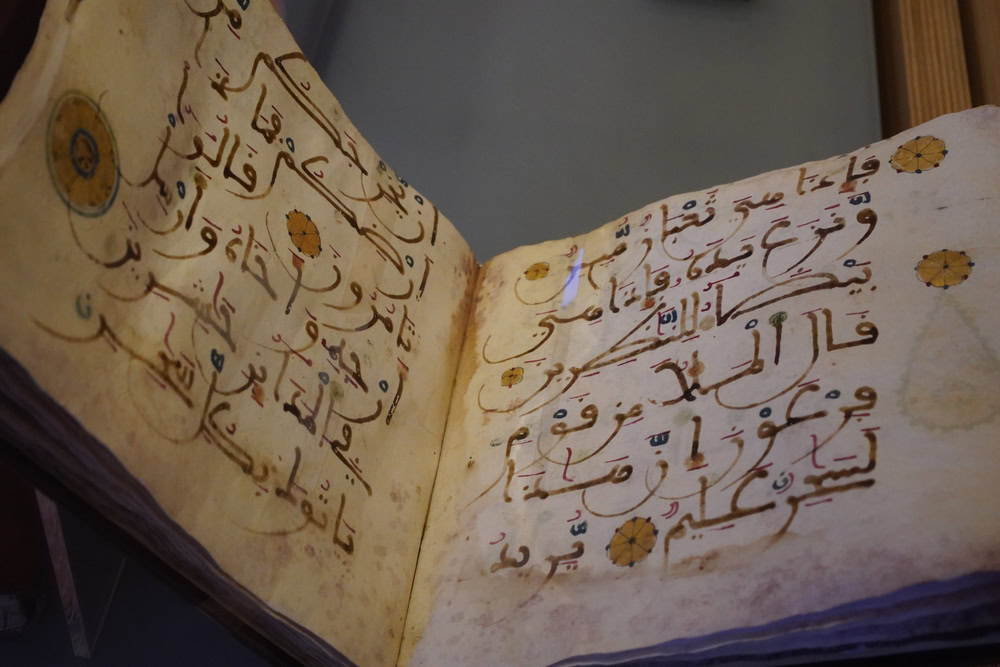How Does Linguistic Interpretation Affect Understanding the Quran?
Answered by Shaykh Anas al-Musa
Question
What is the impact of linguistic interpretation on understanding the meanings of the Quran?
Answer
In the name of Allah, the Most Gracious, the Most Merciful.
All praise is due to Allah, Lord of all worlds. Peace and blessings be upon the Messenger sent as a mercy to the worlds, our Master and Prophet, Muhammad, and his Family and Companions.
Key Aspects of Linguistic Interpretation in Quranic Exegesis
Linguistic interpretation of the Quran involves explaining the meanings of Quranic terms based on the Arabic language. As one of the primary sources of Quranic exegesis, linguistic interpretation has a significant impact, since Quranic terms can be classified into two categories:
- Terms with Only One Meaning: These words carry a single, unambiguous meaning. They are either straightforward and well-known to all Arabs, such as “earth” and “sky,” which are commonly understood, or they might be slightly obscure to some but still only carry one possible meaning, like “tabab” (destruction), “ahqaf” (sand dunes), and “shani’” (hater).
- Terms with Multiple Meanings: These words have more than one possible meaning in the Arabic language, such as “qur’” (which can mean either menstruation or purification period), “‘as‘as” (to approach or withdraw), “‘atiq” (ancient or liberated), “hard” (determined), and “mamnun” (uninterrupted or diminished). It is in this category that the effects of linguistic interpretation become prominent, as terms with a single meaning allow for no disagreement or alternate interpretation.
Due to the potential for multiple interpretations, linguistic interpretation has two primary impacts:
Negative Impact
This arises when a commentator’s interpretation of Quranic terms is influenced by incorrect beliefs, leading them to selectively seek out linguistic meanings that align with their preconceptions. They might interpret the Quran in accordance with their beliefs by relying on uncommon or metaphorical meanings of words that support their views, while disregarding interpretations that are closer to the intended meaning.
For example, some Mu‘tazilites might seek out linguistic support to deny the believers’ vision of Allah (Most High) on the Day of Resurrection, using such interpretations in their exegesis. This selective approach is a negative impact of this type of linguistic interpretation.
Positive Impact
This occurs when the multiple linguistic meanings of Quranic terms are utilized in a way that aligns with a sound understanding of Allah’s words.
Such interpretations may be permissible if the verse can accommodate these meanings without causing contradiction, or it may be otherwise, with each possibility being assessed and either accepted or rejected based on the principles held by trustworthy commentators.
Sources of Disagreement in Linguistic Interpretation
Disagreements stemming from linguistic interpretation of the Quran can arise from several factors:
- Polysemy (Linguistic Ambiguity): Differences may arise due to words having multiple meanings.
- Contradictory Meanings: Discrepancies may occur when a word has opposing meanings.
- Divergence from the Most Common Meaning: Conflicts may surface when a less common meaning of a word is used.
- Word Origin and Derivation: Differences may result from variations in the root and derivation of words.
Guidelines to Prevent Misinterpretation
To prevent excessive or erroneous interpretations, scholars have established certain guidelines for linguistic interpretation, such as:
- Any linguistic interpretation from the early generations (salaf) is regarded as authoritative Arabic usage and takes precedence over later linguistic opinions.
- If more than one correct linguistic meaning is possible for a verse, it is permissible to interpret the verse with those meanings.
- Relying solely on language without other interpretive sources is not appropriate.
- There is no contradiction between linguistic interpretation and interpretive meanings based on context.
Conclusion
The field of linguistic interpretation and its impact on understanding the Quran is vast and requires extensive study and clarification. I hope the points provided here clarify the topic for the questioner.
I recommend referring to the book “al-Tafsir al-Lughawi li al-Quran al-Karim” by Tayyar, which is an invaluable work on this subject and served as a reference in preparing this response.
May Allah bless the Prophet Muhammad and give him peace, and his Family and Companions.
[Shaykh] Anas al-Musa
Shaykh Anas al-Musa, born in Hama, Syria, in 1974, is an erudite scholar of notable repute. He graduated from the Engineering Institute in Damascus, where he specialized in General Construction, and Al-Azhar University, Faculty of Usul al-Din, where he specialized in Hadith.
He studied under prominent scholars in Damascus, including Shaykh Abdul Rahman al-Shaghouri and Shaykh Adib al-Kallas, among others. Shaykh Anas has memorized the Quran and is proficient in the ten Mutawatir recitations, having studied under Shaykh Bakri al-Tarabishi and Shaykh Mowfaq ‘Ayun. He also graduated from the Iraqi Hadith School.
He has taught numerous Islamic subjects at Shari‘a institutes in Syria and Turkey. Shaykh Anas has served as an Imam and preacher for over 15 years and is a teacher of the Quran in its various readings and narrations.
Currently, he works as a teacher at SeekersGuidance and is responsible for academic guidance there. He has completed his Master’s degree in Hadith and is now pursuing his Ph.D. in the same field. Shaykh Anas al-Musa is married and resides in Istanbul.
